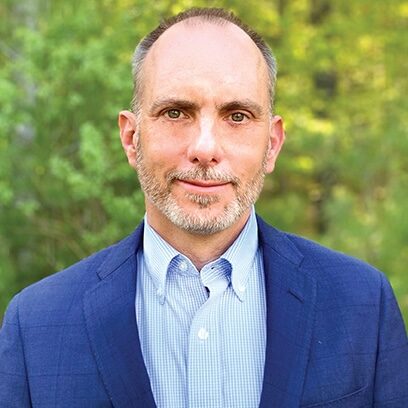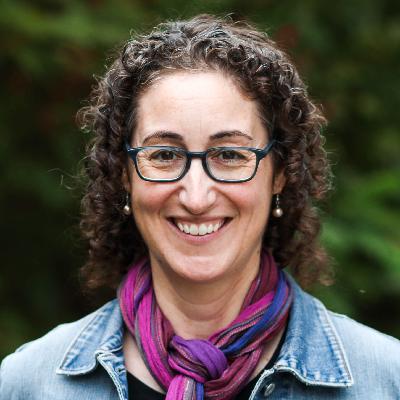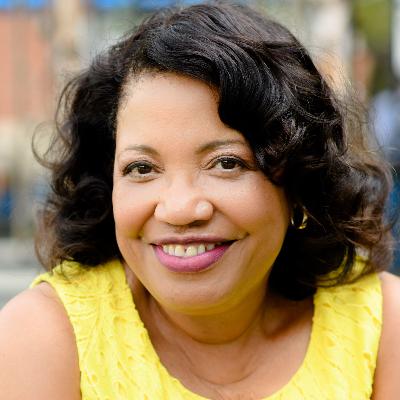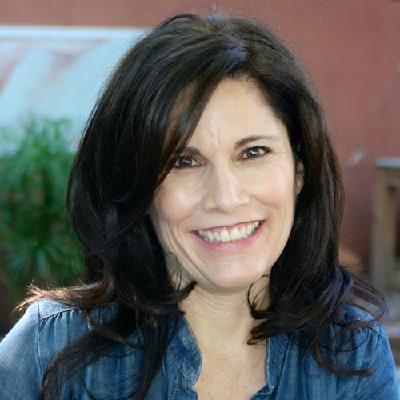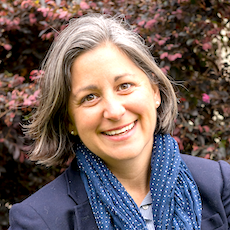Discover Voices in Montessori Podcast
Voices in Montessori Podcast

Voices in Montessori Podcast
Author: Greenspring Center for Lifelong Learning
Subscribed: 15Played: 104Subscribe
Share
© Copyright 2022 All rights reserved.
Description
Voices in Montessori podcast shares interviews with seasoned Montessori educators and leaders, as well as learning specialists, and other experts to inspire and support you. Our podcast is a resource for Montessori educators and leaders packed with actionable ideas to elevate and support your practice. Hear from Montessori elders about real-world classroom tools and school management strategies.
How do I offer positive discipline in my Montessori classroom? How do I get the support that I need as a first year Montessori teacher? How do I change the culture of my Montessori school community? We will explore these questions and more on the Voices in Montessori podcast. Topics include supporting learning differences in the Montessori classroom, positive discipline strategies, the neuroscience of learning, creating school cultures of belonging, and Montessori for elders and dementia.
Tune in and subscribe to deepen your Montessori practice and join a revolutionary community of Montessori educators and leaders who are shaping the future of education.
View the show notes at https://greenspringcenter.org/podcast/
Join the conversation on our Facebook community at https://www.facebook.com/greenspringcenter
Learn more when you follow us on Instagram at https://www.instagram.com/greenspringcenter/
How do I offer positive discipline in my Montessori classroom? How do I get the support that I need as a first year Montessori teacher? How do I change the culture of my Montessori school community? We will explore these questions and more on the Voices in Montessori podcast. Topics include supporting learning differences in the Montessori classroom, positive discipline strategies, the neuroscience of learning, creating school cultures of belonging, and Montessori for elders and dementia.
Tune in and subscribe to deepen your Montessori practice and join a revolutionary community of Montessori educators and leaders who are shaping the future of education.
View the show notes at https://greenspringcenter.org/podcast/
Join the conversation on our Facebook community at https://www.facebook.com/greenspringcenter
Learn more when you follow us on Instagram at https://www.instagram.com/greenspringcenter/
76 Episodes
Reverse
Jonathan Wolff joins the Voices in Montessori podcast to discuss creating effective teaching partnerships with your co-guide or classroom associate. Jonathan describes this relationship as a "delicate dance" that involves "choreographing a partnership built on trust and understanding, humility and honesty." Jonathan first defines what a well-functioning classroom team looks like. Jonathan then dives into how successful teams overcome common challenges to achieve harmony, cohesiveness, and sustained joy.
Jonathan describes specific strategies to build a successful teaching partnership. We all know it's important to clarify roles and responsibilities of each member of the team. But Jonathan encourages us to first get to know the "whole" teammate. (What brought you here? How do you best learn? What are signals that you are feeling stressed?) He advises engaging early and often in "alignment conversations" (for example, "What do we do when...?") to create consistency among the classroom team. Jonathan also explains how to employ the Montessori “Three Period Lesson” model to orient and educate team members. Jonathan shares these strategies - and so much more - in this inspiring episode of Voices in Montessori!
Chip DeLorenzo joins the Voices in Montessori podcast to discuss the importance of holding regular class meetings as a tool to build students’ leadership skills. He advocates that class meetings are essential to developing a sense of community and belonging for the students in your classroom.
Chip describes the structure and processes involved in successful class meetings. He also shares how to teach the components of the class meetings in isolation at the beginning of each school year, so that the students have the skills to run them, and how to support students during meetings if needed (without taking over).
Through the class meeting process, children learn empathy and to see things from other people’s perspectives. They practice advocating for themselves and others, problem solving, collaborating with others, and making amends. Class meetings encompass Grace and Courtesy, SEL education, conflict resolution, and peace education all in one elegant bundle.
When we trust children to solve their own problems, students are invested in the solutions and help remind one another of the class’ shared agreements. This becomes shared leadership!
Mick Scott joins us to discuss what he says is one of the most profound lessons missing in K-12 education: where our emotions come from, what they're pointing toward, and how to experience them in a healthy and empowering way. Mick describes emotions as vibrations within our body that are the dashboard indicators of what’s happening in our minds. While we think our emotions are pointing to our circumstances, they're actually pointing to our minds. There are 4 ways we deal with emotions, and only one of them is reliably healthy for us, the people we care about, and the things we're committed to.
In this episode Shelby Hiken discusses ways to encourage children between the ages of three to six to identify themselves as agents of change - meaning developing them as people who ask themselves, "How can I make this better?" Laying the foundation for this involves preparing the environment for children to take ownership for their community, as well as speaking to students in ways that encourage problem solving and leadership. These are skills that need to be practiced in order to be built! As older children take on the mantle of "change makers," they end up leading and inspiring each other. Shelby gives examples of philanthropic missions that her students took on, the lessons they needed to be successful, and how she wove these projects into the curriculum.
Paula Lillard Preschlack joins us to talk about her new book, The Montessori Potential, How to Foster Independence, Respect and Joy in Every Child. Specifically, Paula encourages teachers and school leaders to aim for authentic, proactive practices in Montessori and staying engaged! Paula dives into what this means, the reasons to do so, and how to do it successfully. We hope listeners will leave feeling inspired and confident!
Courage is a skill we can build and practice every day in our schools. Brené Brown defines a leader as anyone who takes responsibility for developing potential in people and processes -- and has the courage to develop this potential. When we think of leadership in this way and not about titles or corner offices, we see that teachers and school leaders are absolutely leaders, developing people every day. This conversation will give us a lot to think about as we attempt to move towards daring leadership in our school communities.
Julia Volkman joins us to talk about how current brain research shapes our work in the Montessori classroom. How do we take advantage of brain plasticity? How do we support students in developing self-efficacy? How do we overcome our natural negativity bias? Julia shares current brain research and the implications it has on our classroom practices.
Dr. Susan Zoll, Laura Saylor, and Natasha Feinberg discuss their research that aligns the Science of Reading to the Montessori Language curriculum. They describe what led them to undertake this project and their collaboration. Susan, Laura, and Natasha share the foundational elements of the Science of Reading and how these match the lessons and materials we use in our Montessori classrooms. This information is validation for Montessori Guides and parents, as well as a call to action for more research to be conducted on the efficacy of Montessori language curriculum so that we have the scientific data to validate our methods and encourage other educators to learn about Montessori pedagogy.
In today’s episode, we’re talking about early signs of dyslexia in Toddler and Primary age students. As Montessorians, it can be especially difficult at this age to determine when to "follow the child" and give the "gift of time" or whether a child would benefit from additional outside support. How can you tell? How do you broach this topic with parents? Kate McElderry, an Outreach Coordinator & Language Tutor at the Odyssey School, will share her expertise and guidance.
Tamara S. Balis shares her leadership journey and lessons learned. She delves specifically into communication strategies that build a culture of belonging among school staff. The keys? Assuming best intentions, individuation, directness and clarity, active listening, and modeling vulnerability. In other words, we build a culture of belonging for our staff by mirroring the structure of the Montessori classroom!
Dr. Valaida Wise discusses her research and its implications for how to broach the topic of race in our school communities. Val identifies the four stages along the "broaching continuum" that communities must go through on their journey. She advocates that school leaders conduct an equity audit, set goals, make a plan, track progress, and hold themselves accountable. Val also talks about how we start these conversations with our students and their families. Val explains that we must acknowledge difference and learn culturally sustaining practices to support students' identity development.
What is sensory processing disorder? What behaviors will we observe when a child is struggling with sensory processing? Our Guest, Pam Shanks, a Montessorian and expert in special education, will answer these questions and offer specific strategies for supporting children with sensory processing challenges in our Montessori classrooms.
Collaborative & Proactive Solutions (CPS), developed by Ross Greene, is an evidence-based model that helps adults focus on identifying the root of concerning behaviors in children and solving those problems collaboratively and proactively. The CPS model aligns beautifully with Montessori principles and offers powerful insights into how to view and respond to concerning behaviors in your classroom.
Ginni Sackett joins the Voices in Montessori podcast to discuss the important of meeting each child without expectations that they conform to a particular profile for success. (And then doing the same for ourselves and our classrooms!) She reminds us that Montessori method was designed for the child that doesn't necessarily "fit the mold." We must allow ourselves to break free of what the "ideal" Montessori child, Guide, and classroom "should" look like, to actually meet the children where they are. Yet focusing on the needs and interests of each particular child, as well as the group as a whole, can sometimes be a creative challenge for the Montessori Guide. Ginni shares guidance from her long career as a Montessori Guide, trainer, and consultant.
A culture of self-driven work among Elementary students doesn't emerge spontaneously. It needs to be carefully cultivated and maintained by the adults in the classroom. This takes intentional planning and effort, especially at the beginning of the school year. And the culture must be defended vigorously.
Jamie Rue joins the Voices in Montessori podcast to talk about ways to establish the expectations to support the cultivation of a strong work culture in the Elementary environment.
Andrée Rolfe joins the Voices in Montessori podcast to share what she has come to understand to be essential truths about successful inclusion based on her 50 years of experience as a special educator and 13 years of experience as a Montessorian. Andrée suggests that rather than thinking of these guidelines as new set of “tools for your toolbox,” they are better viewed as broader beliefs that inform what you do and how you do it. In other words, these guidelines enable the adult to transform in a way that enables us to serve more children well.
Cassi Mackey joins the Voices in Montessori podcast to discuss creating and living our values as an organization. As Montessorians, we live from a strong pedagogy, but embodying these values consistently can be challenging. Do our choices, actions, words, and interactions align with our Montessori values, especially in moments of stress, conflict, or uncertainty?
Cassi explains that operationalizing and socializing the community's values is critical so there is a strong understand of "what we do at this school." How do we show up, what do our words sounds like, what do our actions look like, and how do we hold ourselves accountable? These values are created through consensus; they become a shared agreement or "a promise to each other." Cassi walks us through the process of how a school staff creates their shared values.
Next Cassi talks about how to operationalize these values, which involves identifying your desired outcomes and defining how these values translate into observable behaviors. Cassi explains that we further reinforce these values by embedding them into the strategic direction, staff evaluations, staff meetings, and more.
This work can change the culture of your school. Cassi has so many specific examples and practical suggestions - you don't want to miss this!
Michelle Blake joins the Voices in Montessori podcast to share strategies Guides can use to help young children make a smooth transition to school. She will discuss things that Guides can do over the summer to build a relationship with the family, how to structure the child's first visit to the classroom, and what to do when children are experiencing a challenging time adjusting to school life.
Ann Epstein and Julia Volkman join the Voices in Montessori podcast to discuss the preliminary results of a research study examining the effectiveness of mentoring for Primary and Elementary Montessori Guides. Ann and Julia describe the structure of the mentoring program, the qualities of effective mentors, and the results of the study.
Angela Ma joins the Voices in Montessori podcast to discuss emotional resilience and the Elementary child. Angela offers practical strategies and helpful perspectives that can help Montessori guides feel confident about empowering their children to handle tough situations, persistent worry, or dysregulation. In addition to an in-depth, brain-based discussion about ways to help our children build the skills to navigate their internal emotional world, Angie Ma authored a book to empower children with information to better understand their emotions and offers a free recording of helpful information for parents. After all, as Angie says, "Emotional resilience is not about feeling good, it's about getting good at feeling."



